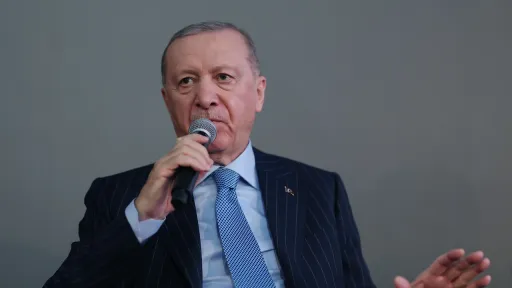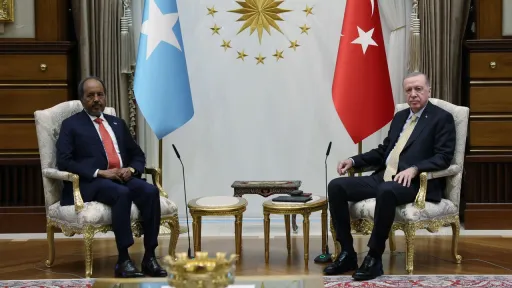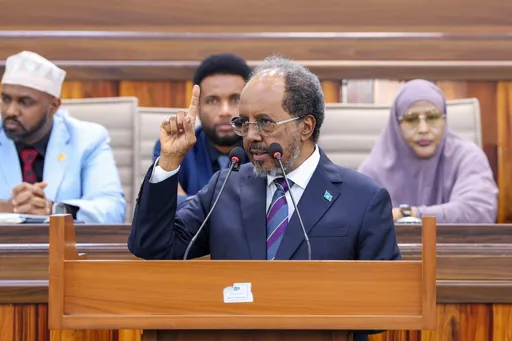By Mazhun Idris
Balaraba Ramat Yakubu was 12 when she dropped out of school. She was then married off with the marriage ending two years later.
Undaunted by the setback, Balaraba sought to reclaim her life by resuming school. She would find her calling in writing, becoming a prolific novelist and an outspoken advocate for women's advancement in northern Nigeria.
When she penned her first novel in 1987, she was only the third Hausa woman author in the region, and the second one to publish a book in one of Africa's most-spoken language.
Born in 1958 in Nigeria's city of Kano, Balaraba's journey of triumph is as epic as the success of the ten novels in her oeuvre.
She is the most well-known Hausa woman author in the romance genre, popularly called "Littattafan Soyayya" (love novels). Most of the authors of these novels are women.
"In 1996, two of my books – Budurwar Zuciya (Young at Heart) and Wa Zai Auri Jahila? (Who Would Marry an Ignorant Woman?) – were part of a PhD dissertation by Novian Whitsitt of the University of Wisconsin-Madison," Balaraba tells TRT Afrika.
Whitsitt also studied the works of Bilkisu Funtua, another woman author.
Pathbreaking wordsmith
In Hausa society, women have historically written religious and poetic texts using the Arabic script. In contrast, literary works, including those by women, were traditionally disseminated by word of mouth or collective memory through fairytales and legends called "Tatsuniya".
Balaraba broke the mould. "I was the only woman among the seven founders of the pioneering Hausa literary association, Raina Kama, established in Kano in the 1980s," she recalls.
The association's name translates to "Appearances can be deceptive", a testimony to the daring of emerging writers who nurtured Hausa fiction, going on to inspire the rise of the Hausa film and music industry.
As the club of women writing novels in the Hausa language grew, Balaraba founded the women-only Hausa writers' club, "Kallabi Writers", in July 2008. The initiative started with a membership of 38 writers, mainly from Kano, where Balaraba is revered as a mother and mentor of emerging authors.
"To this day, many younger Hausa women writers call me their inspiration. I am constantly consulted to provide services such as scriptwriting, editing, and film reviews. It's been great," she tells TRT Afrika.
In 2012, India-based Blaft Publications released the English translation of Balaraba's novel Alhaji Kwikwiyo (Sin is a Puppy That Follows You Home), making her works available in more parts of the world.
Script to screen
Balaraba lives in Kano, the most dynamic space for diffusion of Hausa culture and trade and the centre of production and distribution of Hausa literature and religious texts. Kano is also the hub of the Hausa movie industry, eponymously called Kannywood.
In 1999, Balaraba was approached to approve the movie adaptation of her novel Alhaji Kwikwiyo. She opted to volunteer as the film's costumier to ensure authenticity. Soon, she was motivated to foray into Hausa cinema as a regular scriptwriter.
"I wrote the script for Wata Shari'ar Sai a Lahira, which won several awards at the Motion Pictures Producers Association of Nigeria's Millennium Awards," she recalls.
Other Hausa films Balaraba produced include Ina Sonsa Haka and the blockbuster Juyin Sarauta (Palace Coup), which won over ten awards.
Women in Hausa literature
Maimuna Beli, a veteran writer and the current vice chairman of the Kano state branch of the Association of Nigerian Authors, believes many women in Hausa society being confined to home gives them more reading time and, in turn, "gives an impetus to their writing".
Women are naturally curious about learning and teaching, through which they accumulate experiences. When they write, they paint a world that reflects their realities and fulfils their fantasy and adventures.
Besides, for northern Nigerian women, writing as a work-from-home vocation helps generate income even as they fulfil their roles as homemakers.
Balaraba's story is testimony to the resilience and ultimate triumph of a woman whose early life was suppressed by her lack of education.
"Many women authors take writing as a manifestation of translating injustice into inspiration and an uneventful life into a fictional adventure. There is satisfaction in inking down your qualms to douse your grudges," says Maimuna. "Women love to write because almost nobody listens to or agrees with them otherwise."
In her 60s, Balaraba is engaged in counselling work at the foundation started for her late brother, Nigeria's erstwhile military ruler, Gen Murtala Ramat Muhammad, who died in 1975.
























